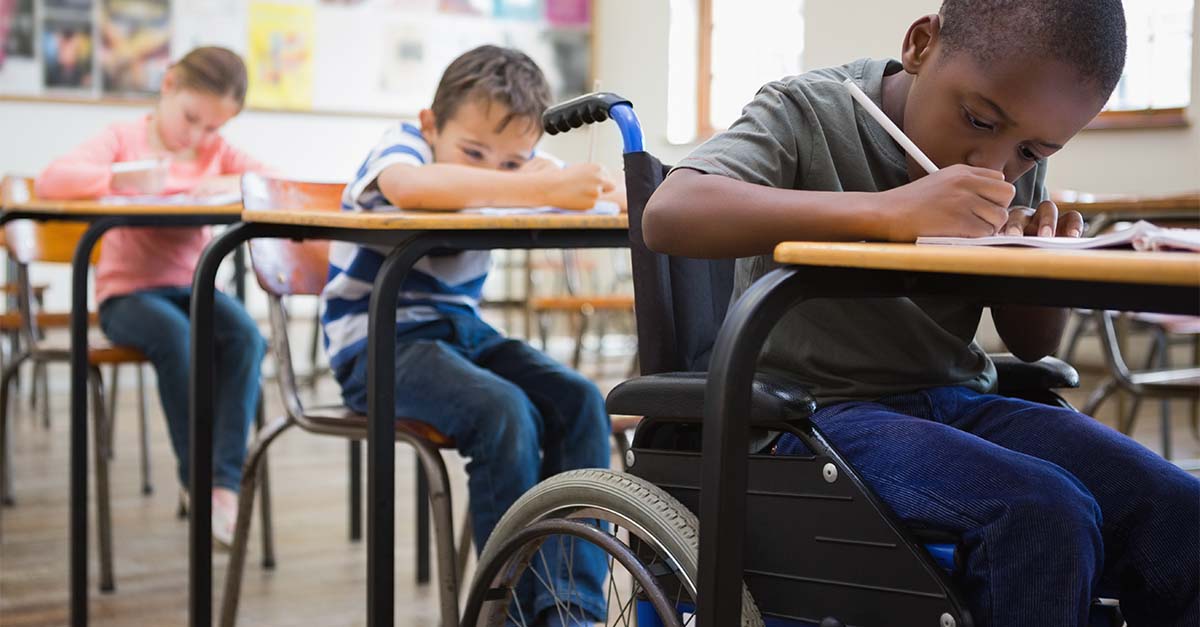Preparing for Back to School 2021

Preparing for back to school in 2021 can be especially stressful for parents of children with cerebral palsy. Returning to in-person learning during a pandemic presents unique challenges for students with disabilities. However, with planning and a sense of fun, students with cerebral palsy can go back to school in 2021 with minimized stress. Learn how to set your child up for success.
Back to School 2021: What You Should Know
Going back to school in 2021 presents challenges and uncertainties to all students and parents. Public, private, and special education facilities have varied COVID-19 protocols. Some schools may be remote, while others are back full-time.
Students with special needs will likely have even more changes to navigate, making many feel like they are in uncharted waters.
This feeling of uncertainty can be triggering for students with cerebral palsy, especially for those living with coexisting conditions, such as ADHD or autism.
Over the last school year, many special education students were unable to access paraprofessionals, causing parents to worry about socialization and access to resources that their children needed.
Remote and hybrid learning presented unique challenges for students with disabilities as educational and support services became difficult to access.
Some common challenges of remote and hybrid learning included:
- Children with disabilities were not able to attend classes that were part of their normal routine
- No collaboration between teachers to ensure children’s needs were met
- No socialization between students and their peers
The coming year is an opportunity to get students back on track.
“I think as we prepare for this coming year, it's important to acknowledge what our scholars need from us, what our families need from us, how challenging it will be for educators.”
—Eric Tucker, Executive Director of the Brooklyn Lab Charter School
On a positive note, newly created resources were developed over the last year to help schools meet the needs of special education students.
Some of the new resources to bridge gaps created by remote learning included digital collaboration tools for students and teachers such as Zoom and Google Classroom, as well as virtual meetings for Individualized Education Program (IEP) teams.
The key to going back to school in 2021 will be to continue finding solutions to new and existing challenges while using remote learning resources that were successful in supporting children’s educational growth.
Who Are My Child’s Special Education Teachers?
Knowing who is part of your child’s special education team is essential to ensuring a successful school year.
Special education providers may be a multidisciplinary team that includes:
- Audiologist
- Behavioral assistant
- Counselor
- Interpreter
- Occupational therapist
- Physical therapist
- Social worker
- Speech therapist
It is important to keep track of all contact information of each person on your child’s education team. Keeping in contact and building rapport with these teachers can ensure you are up-to-date on your child’s successes and address any concerns with their development.
Tips for Heading Back Into the Classroom
Returning back to school in 2021 can be especially stressful for students with cerebral palsy. Many children with disabilities may experience challenges in their learning environment. This can be even more challenging with all the added pressure of COVID-19 protocols.
“School is a temporary, but necessary, journey for someone who has a disability. The better educated you are, the easier time you’ll have as an adult. So, no matter what happens in school, try your absolute best to earn great grades and learn.”
—Jessica Grono, Embracing Life on Wheels educator with cerebral palsy
With many students heading back to in-person learning, your child may need a few pieces of advice to ease into the transition.
An effective way to set your child up for success is to provide a comprehensive list of tips that they can use each day.
Items to include on your child’s checklist for in-person learning include:
- Get up extra early to plan for the day
- Make sure all assistive devices and adaptive equipment/materials are ready ahead of time
- Review the school calendar daily
- Bring a mask
- Bring hand sanitizer
- Ask for help if you’re not sure of the COVID-19 protocols
- Talk to teachers and paraprofessionals frequently
- Have fun!
If your child is in an IEP, be sure to stay current on any changes to the program. It is critical to stay in contact with the entire IEP team and put all of your questions, concerns, and needs in writing.
Don’t Forget: It’s OK to Ask For Help
The past year and a half has been a trying time for everyone. This can be an especially difficult transitional period for children with special needs, as they have likely been remote learning for a while.
If you or your child start to feel overwhelmed, take a deep breath. It’s OK to ask a teacher or other professional for help if you need it. Encourage your child to do the same.
More than ever, it is important to monitor your child to prevent issues before they arise:
- Be on the lookout for behavior changes
- Watch for any unexpected drop in grades
- Create a strong support system for you and your child
While going back to school in 2021 may be different than any other year, for once, every student out there is in a similar position.
By being prepared, you and your student with cerebral palsy can make the new school year an exciting and rewarding one.
